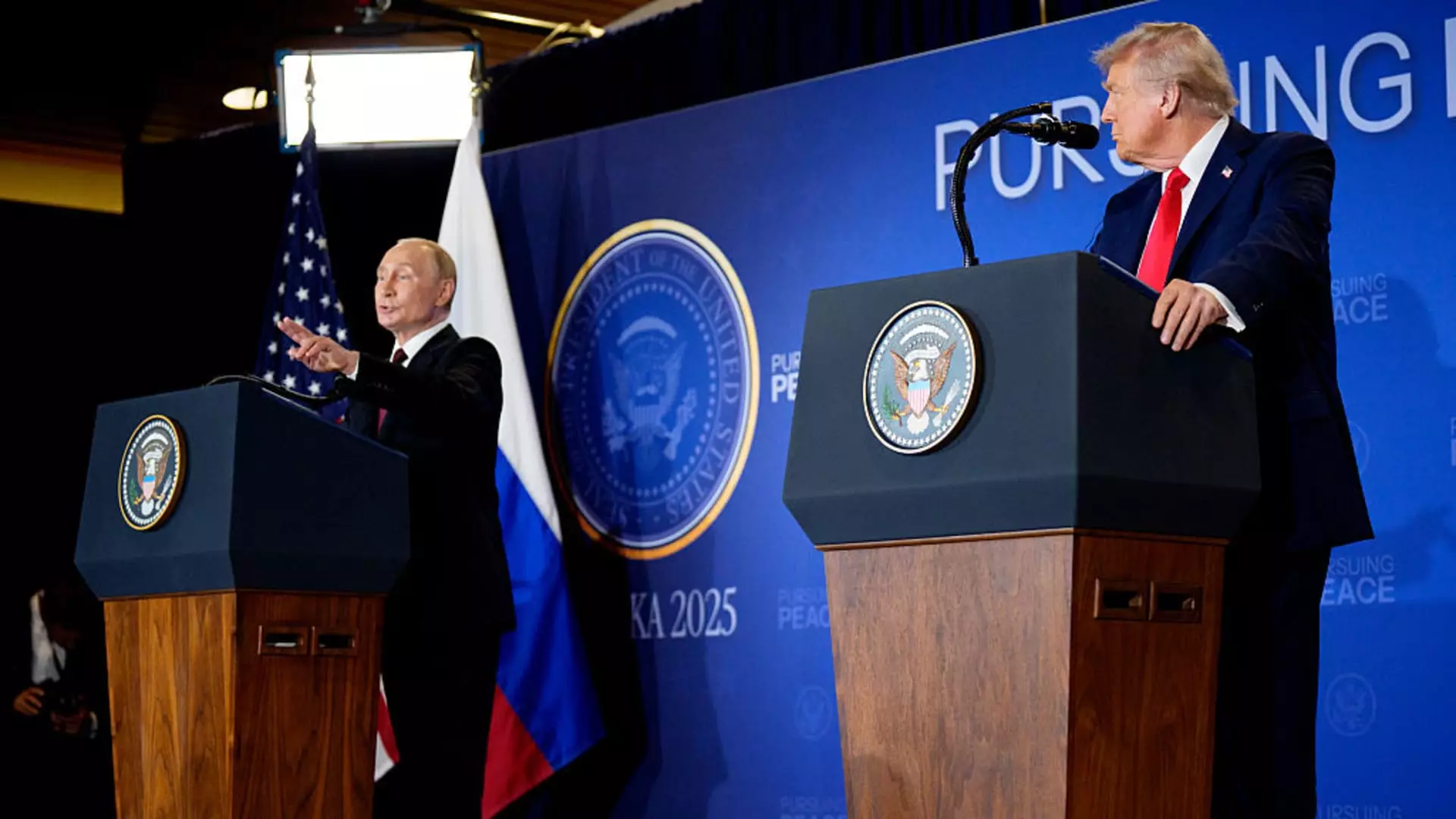The recent summit between former President Donald Trump and Vladimir Putin exemplifies the often superficial nature of high-stakes diplomacy. Official narratives painted the meeting as “productive,” yet beneath these optimistic claims, a more nuanced and skeptical perspective reveals a landscape riddled with unfulfilled promises and strategic ambiguities. The absence of tangible breakthroughs underscores a recurring pattern in international negotiations, where bravado and carefully crafted statements mask the persistent failure to address core issues like sovereignty, conflict resolution, and geopolitical stability.
By framing the discussions as “a listening exercise,” the White House implicitly downplayed the significance of genuine diplomatic progress. Such rhetoric often serves to placate domestic audiences and international partners, while simultaneously allowing leaders to maintain plausible deniability regarding contentious concessions or unresolved conflicts. The fact that Ukraine was excluded from detailed negotiations signals a troubling trend: major powers sometimes sideline the sovereignty and security concerns of smaller nations in favor of strategic interests. This approach fosters skepticism about the sincerity of diplomatic efforts when key stakeholders are bypassed or marginalized.
Power Dynamics and the Specter of Geopolitical Manipulation
Vladimir Putin’s emphasis on the “hard times” for US-Russia relations reveals a narrative of mutual decline that conveniently conceals the strategic aims of Moscow. The summit’s location—Alaska, a territory once Russian—and Putin’s proposal for future talks in Moscow speak to a manipulative framing of dialogue rooted in historical symbolism rather than genuine reconciliation. While Putin touts points of agreement, the reality is that many issues remain unresolved, and the gaps are often glossed over with vague commitments and promises of future meetings.
Meanwhile, President Trump’s assertion that there are just “a very few” unresolved issues strikes as wishful thinking rather than candid diplomacy. His comments about updating NATO and Zelenskyy appear more like diplomatic theater than substantive policy shifts. This performative aspect of international diplomacy—where leaders spin the narrative to suggest progress—undermines trust and fuels skepticism among allies and adversaries alike. The underlying message seems to be that strategic interests and power balances are still dominant, undermining the hope for genuine peace or stability.
Implications for Global Stability and Democratic Values
The summit’s narrative, heavily weighted towards Russian interests and ambiguous in its commitments, exposes a troubling trend: the marginalization of democratic principles in favor of strategic realpolitik. The absence of Ukrainian participation, coupled with Trump’s call for Zelenskyy to “make a deal,” reflects a disturbing willingness among certain Western leaders to accept the erosion of Ukraine’s sovereignty in exchange for short-term diplomatic gains. This approach risks legitimizing authoritarian actions and perpetuating a cycle where conflict resolution is subservient to the strategic calculus of powerful nations.
Furthermore, the Russian media’s positive portrayal of the summit reveals how state-controlled narratives shape international perceptions, often inflating diplomatic successes while obscuring underlying tensions. Such biased portrayals can polarize global opinions, deepen mistrust, and hinder efforts toward genuine multilateral cooperation. The Summit’s superficial consensus and theatrical diplomacy do little to address the root causes of conflict, instead perpetuating a cycle of temporary gestures masking deeper geopolitical flaws.
The illusion of progress in the Trump-Putin summit underscores the urgent need for a more honest, principled approach to diplomacy—one that does not sacrifice sovereignty, democracy, and human rights on the altar of strategic convenience. While leaders may continue to spin narratives of “headway” and “agreements,” the real challenges—Ukraine’s independence, global security, and the safeguarding of democratic values—remain unaddressed. It’s imperative that future negotiations prioritize transparency, inclusivity, and a commitment to universal principles rather than fleeting political gains or superficial resolutions crafted for domestic consumption. Only through such a principled stance can genuine progress be achieved, and the cycle of hollow diplomacy be broken.


Leave a Reply